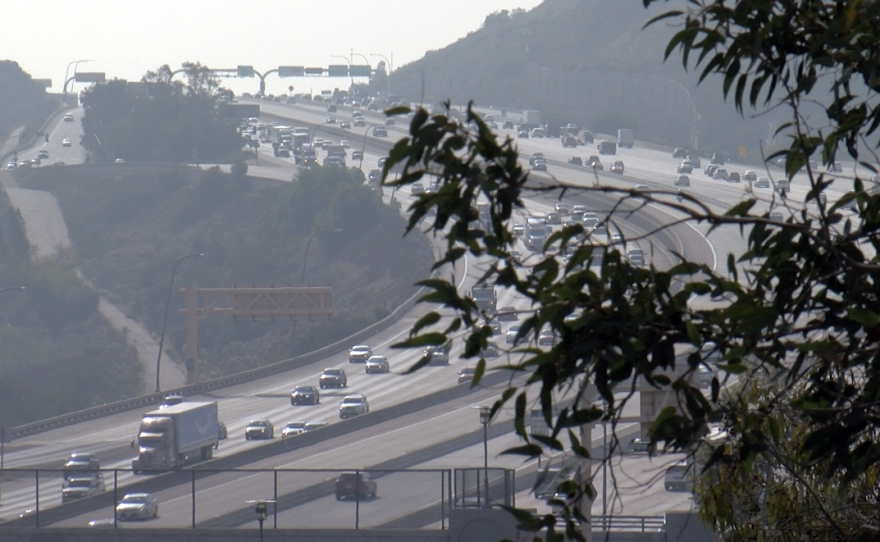San Diego’s City Council will appoint a slate of commissioners to the city’s new, more robust police watchdog panel on Monday amid growing concern about the city’s lack of police oversight.
The City Council meeting comes on the heels of a KPBS investigation that found community oversight of police in San Diego has essentially ground to a halt in recent months. The appointment of the new commissioners will be an essential step toward honoring the demands of voters, who overwhelmingly approved stronger oversight of the San Diego Police Department in November 2020.
Community advocates say the appointment of new commissioners is long overdue.
“The commission could have been fully up and running within two years,” said Andrea St. Julian, co-chair of San Diegans for Justice. “It's been way too long.”
St. Julian is the author of Measure B, which passed with 75% of the citywide vote. The measure tasked the City Council with creating the Commission on Police Practices, an oversight body made up of community volunteers with the power to independently investigate allegations of police misconduct.
But the City Council still has a ways to go before meeting that mandate. It took about two years for the council to pass an ordinance that established the commission’s framework. Then months passed without the council appointing new commissioners. Earlier this month, KPBS requested an interview with Council President Sean Elo-Rivera about issues with the Commission on Police Practices. Two days later, he announced in a press release the City Council would appoint commissioners within weeks.
But appointing commissioners is just another step in the process. After the council’s hearing on Monday, the new commissioners will have to go through extensive training. And then full-time staff, including investigators and outside counsel, must be hired in order for the commission to exercise its full oversight authority over police.
Monday’s hearing also appears to have been rushed. The deadline for commissioner nominations was in February, but the council only recently notified nominees about the hearing.
“I don’t think it’s fair to give people a week’s notice,” said Coleen Cusack, a local attorney and nominee for the commission.
Nominees are encouraged to give a brief presentation to council members. St. Julian said some nominees may not have enough time to prepare a presentation — or be able to attend the meeting at all.
“Such short notice is really insensitive to those community members who don’t have the luxury of just being able to take off from work whenever they want to,” she said.
Monday’s hearing also came as a surprise to some on the City Council. Councilmember Marni von Wilpert’s office confirmed she heard about the hearing from Elo-Rivera’s press release earlier this month.
Last week, von Wilpert — who chairs the Public Safety Committee — called for an urgent hearing about the status of the Commission on Police Practices.
“The reported cessation of police oversight and accountability within the City of San Diego is deeply concerning, and our residents rightfully demand answers,” von Wilpert said in a press release that highlighted KPBS’s investigation.
Elo-Rivera responded to von Wilpert’s announcement in an emailed statement to KPBS.
“I appreciate the Public Safety Chair engaging in this important issue,” the statement read. “I look forward to the Committee’s work to address the backlog.”
A spokesperson for Councilmember Monica Montgomery Steppe did not respond to a request for comment.
Before Measure B passed, San Diego had a community board that reviewed and commented on SDPD’s internal investigations into civilian allegations against officers. While the City Council worked to set up the new Commission on Police Practices, an interim commission was supposed to carry on the review work of the old board.
But that interim commission is in shambles. It’s supposed to have 25 members, but only 10 spots are filled. The backlog of unreviewed cases has ballooned to more than 150 cases. Dozens of cases have been in the backlog for so long that SDPD has closed them without any input from the commission.
-
San Diego's city council will nominate a slate of commissioners to the city’s new, more robust police oversight panel today, but there’s growing criticism of the process after a recent KPBS investigation.
-











